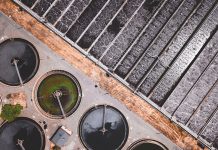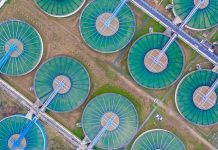During the last month or so there’s been one word making headlines more and more often – drought. This winter was the driest winter period in 20 years, leading to lower than normal water levels in rivers, groundwaters and reservoirs across England, especially in the south-east.
Despite some rainfall in the middle of May dry conditions are expected to return so it seems that talk of potential water shortages and even the introduction of temporary water use bans could be back on the agenda as we near the summer. With climate change meaning the risk of ‘drought’ is ever increasing, is there more than could be done to be more resilient during dry weather conditions?
Many water companies provide water saving advice and devices to their customers. These include things like advice to shower instead of bath, turn off taps while brushing teeth or providing water saving shower heads. Although these measures can help reduce water demand it’s time to get smarter.
At Albion Water we’re doing things differently and leading the way in this field. We provide alternative water & waste water solutions to large housing developers and builders where they’re facing challenges from the monopoly water companies. The solutions Albion puts in place to enable developments to get off the ground have sustainability at their heart, meaning water demand is reduced from the outset.
With major development growth required to sustain the population increase in the UK over the next 20 years, there have been numerous debates about the impact new buildings and increased industry will have on the environment. Combined with greater pressure on water resources water management is gradually moving further up the development agenda. However, given the lack of previous investment, there are lots of opportunities for developers to reduce water demand and ensure that new developments play their part in protecting our rivers, wetlands, reservoirs and lakes.
The cost of providing new water resources is rapidly increasing, and the available options are relatively limited. In addition government legislation now mandates improved water efficiency in the built environment, including Part G of the Building Regulations, which developers must meet as part of planning requirements. These more stringent rules mean more and more developers are looking for additional support and strategies for meeting water consumption targets.
A recent report called ‘Water Resources: Long-term Planning Framework’ published by Water UK in September 2016, highlighted that increased investment in water infrastructure would be necessary to keep up with likely demand. Historically, a lack of investment in infrastructure also results in significant waste through the distribution network. And that’s where Albion are helping to change the way we do things to deal with the challenges ahead.
Part of Albion’s solution is to build waste water treatment plants on site putting less pressure on existing infrastructure. We also consider incorporating sustainable urban drainage systems (SUDS) into water recycling schemes. These include water attenuation ponds and natural wetlands. Not only do these measures improve water efficiency but they also add to the character and desirability of new developments through increased biodiversity and improved green spaces.
We’ve taken basic water recycling concepts, coupled it with 21st Century engineering practices and our understanding of managing the water cycle, to produce a reliable non-drinking water (green water) supply for use in toilet flushing and garden watering, saving drinking water for washing, drinking and food preparation. We provide these green water services to our customers at discounts to the cost of drinking water, saving the household customer money while reducing water demand and enabling today’s environmental standards to be achieved.
An example of how Albion Water has helped a developer meet water efficiency targets is at Upper Rissington village in Gloucestershire which consists of 350 existing homes and 368 new build houses. Developer Linden and Bovis Homes contracted Albion Water to provide water and waste water services to the new houses and to adopt the old private water and sewerage infrastructure in the village. Albion replaced the leaking water network, removing the old pumping station and abandoning the reservoir. This resulted in a reduction in total demand of 0.75 Ml/d. We installed Automated Meter Reading technology across the site which enables the company to track and spot gradual or sudden changes in water use. Local woodland and wildflower meadows were also adopted by Albion to be managed as sustainable ecological resources or public open spaces and Albion continues to grow community engagement through the green spaces in and around the site.
At Albion Water we recognise the need for alternative and sustainable solutions in today’s changing environment. The recent dry spell highlights the need for innovative thinking and new, smarter ways of managing water to increase resilience during dry weather conditions.
Case Study: Chigwell
It’s not just Upper Rissington that’s had the Albion treatment, the company also developed a site in Knowle, in Hampshire, and is currently working on a new development in Chigwell, Essex.
Oaklands Hamlet, Chigwell, was formerly occupied by an unplanned community incorporating various small scale business interests. The brownfield site is now being developed by Countryside Homes and consists of 450 new homes, and 25 acres of public open space.
Countryside approached Albion to provide water and waste water services due to the challenging demands associated with developing the site and the experience that we could call on to establish regulated services that met or exceeded Countryside’s expectations.
We are currently working with Countryside to lay the water mains and services to the development. Each house is also connected to a green water supply which is sourced from highly treated recovered water. The green water feeds the toilets and outside tap in each house and customers pay a reduced tariff for this water.
We also worked with Countryside to develop the sewerage system and plan to construct a small waste water treatment plant in a corner of the site.
Through Albion, Countryside has saved more than £2 million and customers will also save on their water bills.





